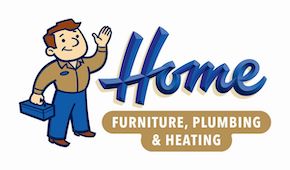
We spend lots of time indoors. As a matter of fact, the Environmental Protection Agency (EPA) has approximated being within a building makes up 90% of our time. Although, the EPA also says your indoor air can be three to five times more polluted than outside your home.
That’s since our residences are firmly sealed to increase energy efficiency. While this is great for your utility bills, it’s not so good if you’re among the 40% of the population with respiratory allergies.
When outdoors ventilation is restricted, pollutants such as dust and volatile organic compounds (VOCs) could get captured. As a consequence, these pollutants could worsen your allergies.
You can enhance your indoor air quality with clean air and regular cleaning and vacuuming. But if you’re still struggling with symptoms while you’re at your house, an air purifier may be able to provide assistance.
While it can’t remove pollutants that have landed on your furniture or carpeting, it may help freshen the air traveling throughout your house.
And air purification has also been scientifically verified to help lessen some allergic symptoms, according to the American College of Allergy, Asthma and Immunology. It can also be useful if you or a family member has lung trouble, like emphysema or COPD.
There are two options, a portable air purifier or a whole-home air purifier. We’ll go over the differences so you can figure out what’s correct for your home.
Whole-House Air Purifier vs. Portable Air Purifiers
A portable air purifier is for a lone room. A whole-house air purifier accompanies your HVAC unit to clean your complete house. Some types can purify on their own when your home comfort equipment isn’t operating.
What’s the Best Air Purifier for Allergies?
Seek a purifier with a High Efficiency Particulate Air (HEPA) filter. HEPA filters are installed in hospitals and offer the best filtration you can buy, as they catch 99.97% of particles in the air.
HEPA filters are even more beneficial when used with an ultraviolet (UV) germicidal light. This mighty combination can wipe out dust, dander, pollen and mold, all of which are general allergens. For the greatest in air purification, evaluate a system that also has a carbon-based filter to reduce household vapors.
Avoid using an air purifier that creates ozone, which is the top ingredient in smog. The EPA advises ozone may worsen respiratory troubles, even when discharged at minor settings.
The Allergy and Asthma Foundation of America has created a listing of questions to consider when purchasing an air purifier.
- What can this purifier remove from the air? What doesn’t it extract?
- What’s its clean air delivery rate? (A higher figure means air will be freshened more rapidly.)
- How frequently does the filter or UV bulb need to be switched]? Can I finish that by myself?
- How much do spare filters or bulbs cost?
How to Lessen Seasonal Allergy Symptoms
Want to have the {top|most excellent|best] results from your new air purification unit? The Mayo Clinic suggests completing other steps to decrease your exposure to seasonal allergy triggers.
- Stay inside and keep windows and doors sealed when pollen counts are high.
- Have other family members cut the lawn or pull weeds, since these jobs can irritate symptoms. If you must do these chores yourself, you might want to consider wearing a pollen mask. You should also bathe right away and put on clean clothes once you’re completed.
- Avoid drying laundry outside your home.
- Use your air conditioner while at your house or while driving. Consider using a high efficiency air filter in your home’s home comfort unit.
- Even out your house’s humidity percentage with a whole-house dehumidifier.
- Hardwood, tile or linoleum are the suggested flooring materials for lowering indoor allergens. If your residence has carpet, install a HEPA filter on your vacuum cleaner.
Let Our Specialists Manage Your Indoor Air Quality Necessities
Want to take the next step with adding a whole-house air purifier? Give our experts a call at 815-933-8213 or contact us online to get an appointment. We’ll help you locate the best system for your family and budget.
